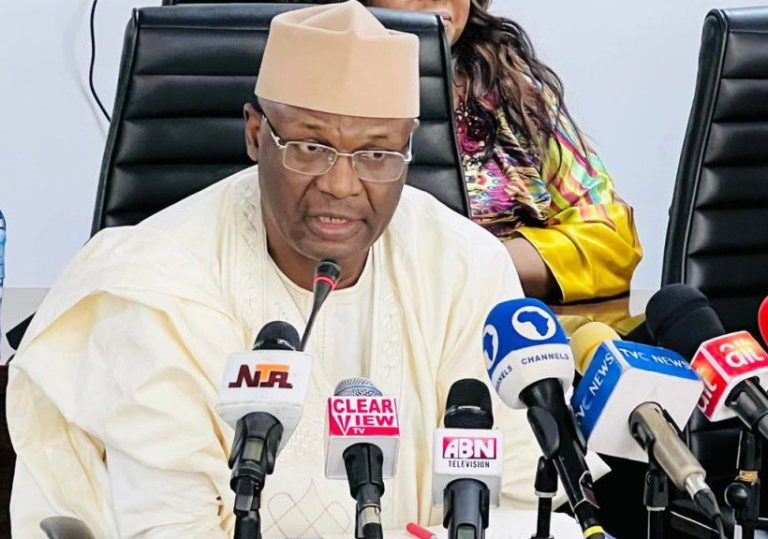The Independent National Electoral Commission (INEC) has proposed a budget of N126 billion for 2025, nearly three times the size of the previous year’s allocation.
Speaking before the National Assembly during the defense of the 2024 budget implementation on Friday, INEC Chairman Prof. Mahmood Yakubu emphasized the critical need for sufficient funding to meet the Commission’s constitutional responsibilities.
“Our proposal for 2025: the Commission requires the sum of N126 billion. So, we would like the support of the National Assembly members to ensure that we are adequately funded for the responsibilities we are required to discharge, and most of these responsibilities are constitutional, not just in the Electoral Act,” Yakubu stated.
Rising costs of elections
Prof. Yakubu described the cost of conducting elections in Nigeria as “exorbitant and burdensome,” pointing out the financial strain it imposes on the Commission. He revealed that INEC operated on a reduced budget of N40 billion last year, significantly lower than the N80 billion initially requested.
“Despite being one of the largest employers in the country, we have had to operate on a constrained budget. This has hindered our ability to fully execute our constitutional duties,” he said.
Call for collaborative solutions
ALSO READ Trump sentenced to ‘unconditional discharge’ for hush money conviction
The INEC Chairman proposed a retreat between lawmakers and INEC to foster dialogue, exchange ideas, and develop sustainable solutions to address the challenges facing Nigeria’s electoral process.
“We need a major conversation; the Commission cannot continue conducting elections all year round,” Yakubu urged.
Infrastructure challenges
Prof. Yakubu also highlighted the deteriorating state of INEC’s facilities, including 860 buildings across the country that require urgent repairs. This infrastructure decline, he noted, further compounds the Commission’s operational challenges.
The proposed budget, if approved, aims to address these pressing issues, ensuring INEC is better equipped to fulfill its mandate. As the 2025 fiscal year approaches, the National Assembly’s decision will determine how effectively the Commission can navigate the increasing demands of Nigeria’s electoral process.


